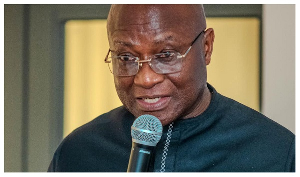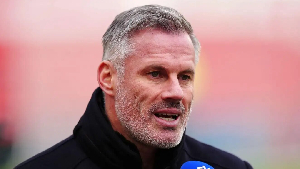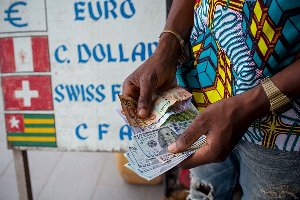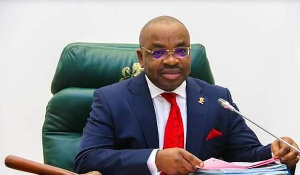On December 10, over 160 world leaders and representatives of Governments met in Marrakesh, Morocco to adopt the Global Compact for Safe, Orderly and Regular Migration.
The Global Compact for Migration (GCM) for short, is the first-ever United Nations global agreement on a common approach on dealing with international migration in all its dimension.
There are over 258 million migrants around the world living outside their country of birth.
This figure is expected to grow for a number of reasons including population growth, increasing connectivity, trade, rising inequality, demographic imbalances and climate change. Migration provides immense opportunities and benefits – for the migrants, host communities, communities of origin and destination.
However, when poorly regulated it can also create significant challenges. These challenges include overwhelming social infrastructures with the unexpected arrival of large numbers of people and the deaths of migrants undertaking dangerous journeys. For the fifth straight year, IOM has witnessed the deaths of at least 2,000 irregular migrants seeking to reach Europe via the Mediterranean alone.
Movement from Ghana to other parts of the world has grown substantially in recent times. For instance, many young Ghanaians attempt to reach Europe in search of greener pastures by travelling irregularly through Libya because of misinformation and limited opportunities for safe and regular migration.
Many of them either end up losing their lives trying to cross the Mediterranean Sea or live in deplorable conditions in Libya, suffering human rights abuses at the hands of smugglers and in detention centres. In 2016 a total of 5,636 Ghanaians (4,933 men, 170 women and 533 children, of which 499 were unaccompanied migrant children) arrived in Italy by boat in search of better opportunities and lives - making Ghanaians the 11th largest nationality to arrive on Italian shores. Generally, there was a reduction in the number of arrivals on Italian shores in 2017 from all nationalities with the number of Ghanaian arrivals falling to 3,909. The situation in Libya, however, remains extremely difficult for stranded migrants.
This is a global phenomenon and several studies suggest that a better-coordinated approach to migration management could provide new and improved opportunities for all countries involved. The GCM recognises, therefore, that “No country can address the challenges and opportunities of this global phenomenon [of migration] on its own”.
Ghana was an active participant in the preparatory work towards the GCM. The International Organization for Migration (IOM) in Ghana supported the Ministry of Interior and other stakeholders in national and regional consultations to ensure that priority issues for the country, such as irregular migration, labour migration or counter-trafficking, were thoroughly discussed involving all relevant partners. The pact – which is not legally binding - contains a list of possible actions, which signatory member states, including Ghana, can choose from to address irregular migration, human trafficking, border management and return and reintegration. The GCM also focuses on solutions and best practices to facilitate regular migration.
IOM which has been present in Ghana since 1987, will continue to support the Government of Ghana in its migration governance efforts. Currently, Ghana is one of 14 countries in West and Central Africa benefiting from an EU-IOM Joint Initiative for Migrant Protection and Reintegration. This project aims to protect the security, dignity and rights of migrants along migratory routes - in the case of Ghana mainly the corridor Burkina Faso, Niger and Libya - and to help improve the reintegration of returnees through innovative approaches. Since May 2017 alone, IOM has facilitated the return of 970 Ghanaians, primarily from Libya. In terms of returns, the Brong Ahafo Region is the highest, followed by the Greater Accra, Ashanti, Western Region and the Northern region- regions most prone to irregular migration in Ghana.
Ghana will celebrate International Migrants Day this year, 18 years since the day was instituted, acknowledging and emphasizing the positive contributions of migrants and their fundamental role in sustainable development when it is safe, orderly and dignified, in line with the GCM. The theme for the celebration is Migration with Dignity.
It is an important moment to remember that Dignity for all Migrants is a goal that we need, together, to continue to strive for. It starts at home and it starts first and foremost with protecting the youth from dangerous migration attempts. In order to continue spreading the important message on safe migration, four (4) migrant-sending communities in the Greater Accra region including Maamobi, Nima, Accra Newton and Madina will take part in a safe migration football competition.
Given the attraction of sports, particularly football to the youth, we hope the football competition will offer yet another opportunity to bring youth together to highlight the dangers faced by irregular Ghanaian migrants during their journey, sensitize them on safe migration and also highlight the opportunities available to them in Ghana. It will also identify ways through which the youth can add their voice to the campaign against irregular migration in Ghana.
Migration has been dominating the international agenda and will continue to do so. Migration is inevitable, due to demography and crises, demand for labour, North-South socio-economic disparities, environmental degradation and other driving factors; it is necessary, for socio-economic development and growth; and it is actually desirable, if well-managed. As reiterated by IOM’s Director General António Vitorino, at the adoption of the GCM, well-managed migration requires cooperation at all levels.
It is high time that the challenges and opportunities brought about by international migration unite us, rather than divide us. We at IOM Ghana will continue to stand with the Government of Ghana to ensure the full implementation of the GCM in support of national development and to the benefit of Ghanaian migrants abroad and migrants in Ghana.
Opinions of Tuesday, 18 December 2018
Columnist: Sylvia Lopez-Ekra



















